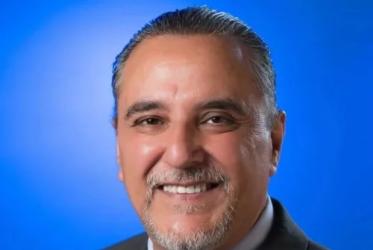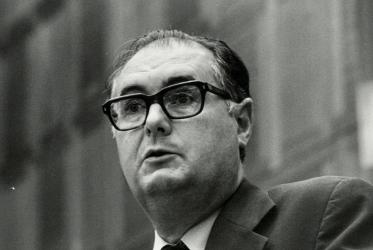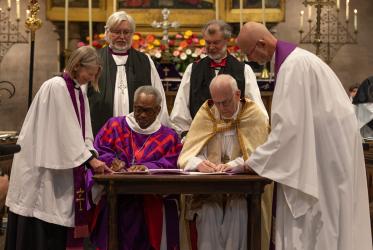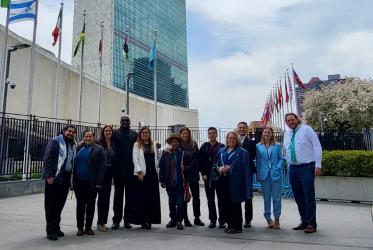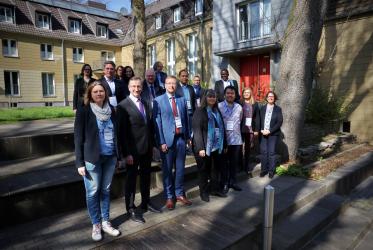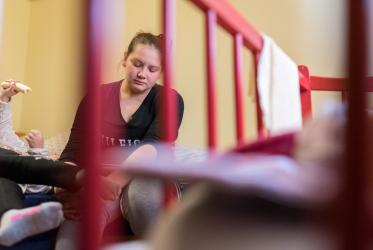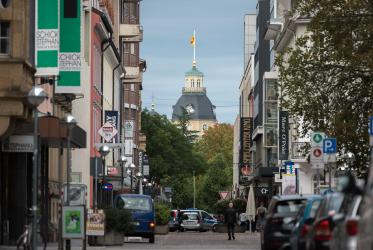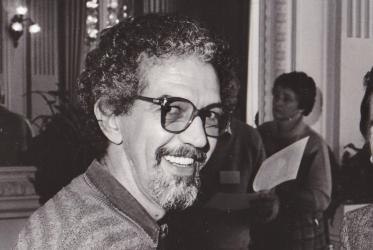Displaying 1 - 20 of 66
07 July 2023
WCC mourns the death of Julio de Santa Ana
20 April 2023
Assembly participants come together as church families
04 September 2022
WCC executive committee lights the way for WCC 11th Assembly
26 November 2021
Thursdays in Black ambassadors map positive future
06 October 2020
New student body at Bossey Ecumenical Institute “a source of joy”
14 September 2020
Thomas Kang: “Hope is what moves Christians”
21 August 2020
